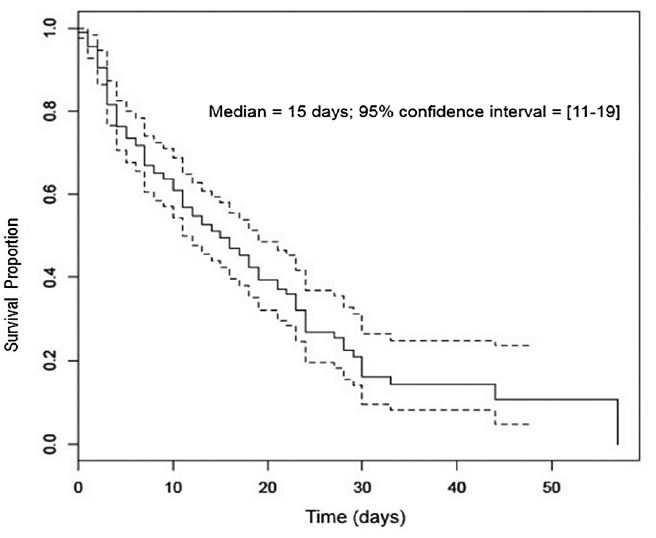ABSTRACT
Objective:
To analyze mortality, survival and prognostic factors of patients with AIDS in Intensive Care Unit (ICU).
Method:
Retrospective cohort study with a sample of 202 patients with AIDS in ICU, whose sociodemographic, epidemiological, and clinical characteristics were obtained from medical records and assessed.
Results:
Patients were mostly male (73.8%) and drug users (59.4%), with no regular health follow-up (61.4%) and no adherence to antiretrovirals (40.6%), presenting low CD4+ T lymphocyte count (94.0%) and high viral load (44.6%). The main causes of hospitalization were sepsis and respiratory and renal insufficiency. The mean duration of hospitalization was 11.9 days (p = 0.0001), with a 41.6% survival; 58.5% died in the ICU. Sepsis upon admission (p < 0.001), pressure injury (p = 0.038), sexual exposure (p = 0.002), high viral load (p = 0.00001) and prolonged hospitalization (p < 0.001) increased the risk of death.
Conclusion:
Most patients had no regular health follow-up, were drug users and presented low CD4+ T lymphocyte count and high viral load. The high mortality indicated that antiretroviral adherence is essential to reduce viral resistance, opportunistic diseases, and mortality.
DESCRIPTORS
Acquired Immunodeficiency Syndrome; Mortality; Survival; Intensive Care Units

 Thumbnail
Thumbnail
